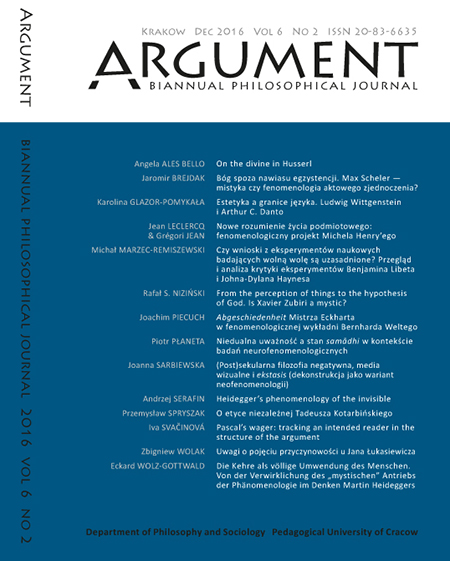Pascal’s wager: tracking an intended reader in the structure of the argument
Słowa kluczowe:
argumentation structure, Pascal’s wager, pragma‐dialectics, rhetorical analysis, strategic maneuvering, topical potentialAbstrakt
Pascal’s wager is the name of an argument in favor of belief in God presented by Blaise Pascal in §233 of Thoughts. Ian Hacking (1972) pointed out that Pascal’s text involves three different versions of the argument. This paper proceeds from this identification, but it concerns an examination of the rhetorical strategy realized by Pascal’s argumentation. The final form of Pascal’s argument is considered as a product that could be established only through a specific process of persuasion led with respect to an intended reader with a particular set of initial beliefs. The text uses insights from the pragma‐dialectical approach to argumentation, especially the concept of rhetorical effectiveness of particular choices from the topical potential. The argumentation structure of Pascal’s wager is considered to be a reflection of the anticipated course of dialogue with the reader critically testing the sustainability of Pascal’s standpoint “You should believe in God”. Based on the argumentation reconstruction of three versions of the argument, Pascal’s idea of opponent/audience is identified. A rhetorical analysis of the effects of his argumentative strategy is proposed. The analysis is based on two perspectives on Pascal’s argument: it examines the strategy implemented consistently by all arguments and the strategy of a formulation of different versions of the wager.


